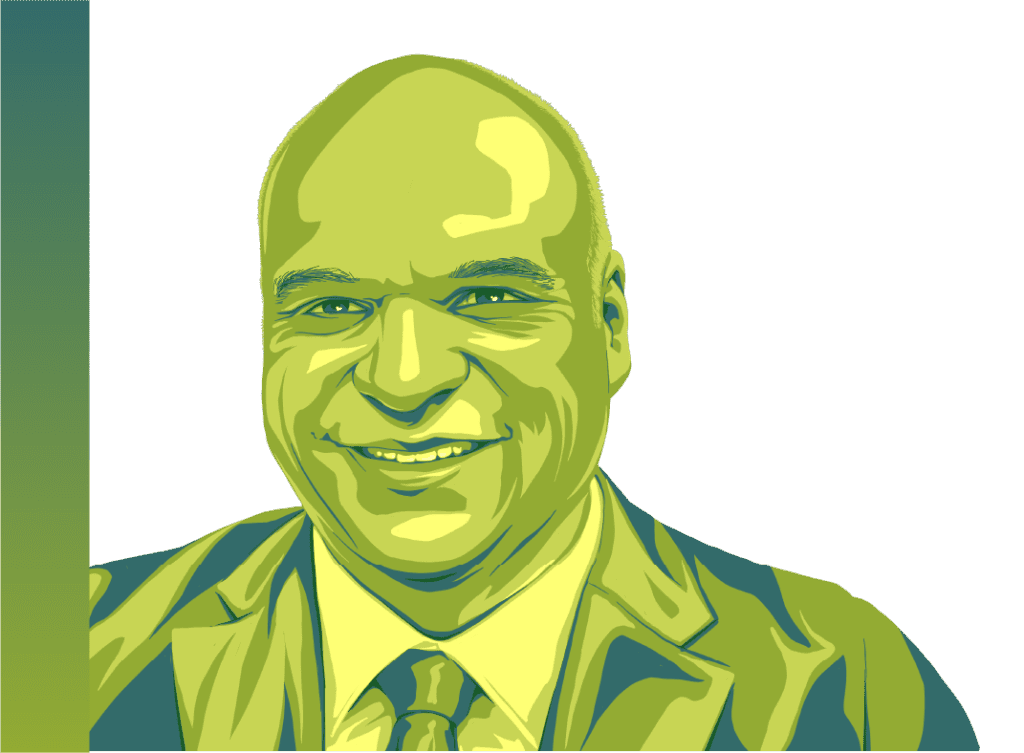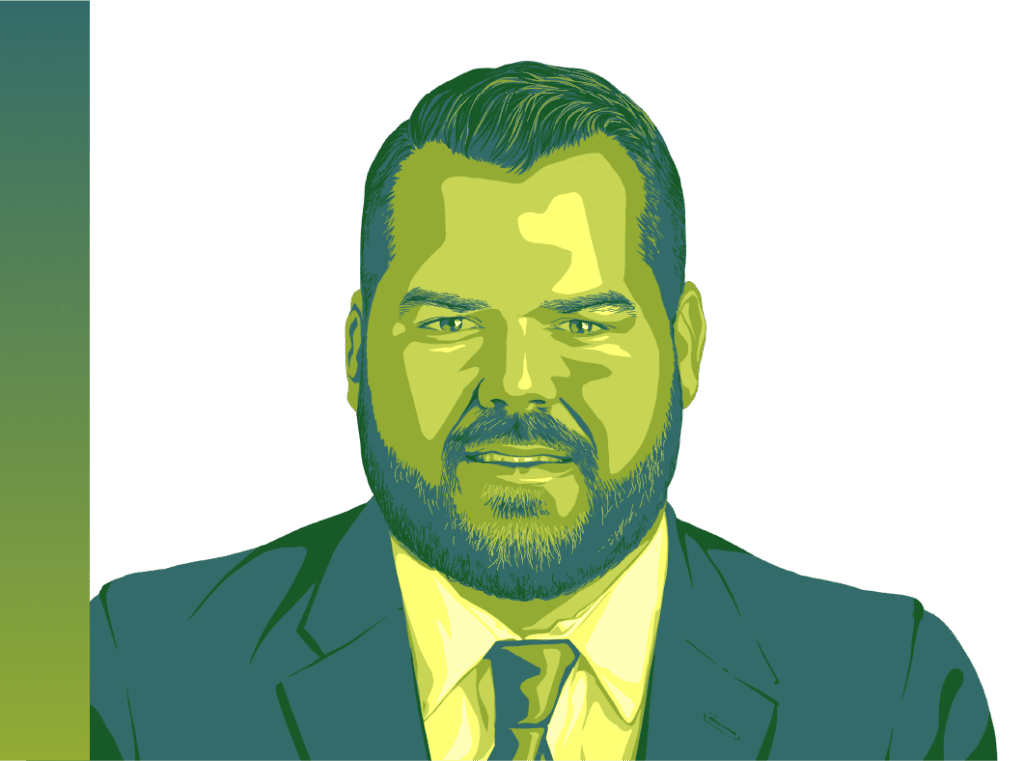
2020 Speaker List
Speakers are organized alphabetically by last name.

Wes Barker
Breakout Session Presenter
Wesley Barker is a data scientist with the Office of the National Coordinator for Health Information Technology (ONC) where he leads research that uses market, survey and administrative data to quantify the adoption and use of health IT and the impact of federal health IT policy. Wesley began his federal career with the US Department of Health and Human Services in 2012, and has been with ONC since 2013. Wesley holds a MS in International Political Economy from the University of Texas at Dallas.
Measuring FHIR Support Among Certified Health IT Developers
he ONC Cures Act Final Rule requires the Fast Healthcare Interoperability Resources (FHIR) standard for a new Standardized API Criterion, as part of the Health IT Certification Program, and sets new requirements for third party developer access to EHR data. ONC will present results on its work to measure FHIR support among health IT developers and how third party software and app developers are integrating with EHR systems. Results include findings from analysis of ONC’s Certified Health IT Product List (CHPL) and third party applications discoverable through marketplaces curated by leading EHR developers.

Michael Barabe
Breakout Session Panelist
Michael Barabe is the Enterprise Data Architect for the Washington State Health Care Authority (HCA) and has spent his entire 20 year career in the area of healthcare information technology and data. Michael has had key roles in several large IT and data initiatives at HCA, including implementation of the HIPAA X12 standardized transactions, served as the Technical Manager of the agency’s Medicaid Enterprise System (MES), and helped establish HCA’s first enterprise data management and governance team. In his current role, Michael is working across the agency to make improvements in data and technical architecture to enable analysts to produce robust data products that inform critical policy decisions. Michael is currently working to help the agency solve the data and technical challenges with interoperability, electronic consent management, metadata management, and expanding HCA’s Enterprise Data Warehouse.
At HCA, the vision is “A Healthier Washington” for the more than 2 million Washington State residents we cover, and that can only achieved through secure and standardized exchange of healthcare data. As a lifelong resident of Washington State, Michael is proud to serve as a public employee working to improve the lives and health of not only Washingtonians, but through the work of the 2020 Cambia Grove Innovator Fellowship, the entire country. Michael holds a B.A. in Management Information Systems from Washington State University, and lives in Shelton, WA with his wife and two children.
Real-World Experience with FHIR: Learnings from Cambia Grove Fellows
This session will be a panel discussion with Cambia Grove Innovator Fellows around common barriers to advancing data interoperability in a real-world setting, from executive-level strategy to hands-on work with data, with recommendations on how to overcome those barriers.

Paula Braun, MS
Breakout Session Presenter
Paula Braun is an Entrepreneur-in-Residence at the US Centers for Disease Control and Prevention. She tracks evolving tech trends and helps to communicate why they matter to public health. In 2019, she was named one of the top 50 Influencers in the Federal government on artificial intelligence. She engages stakeholder groups from across government, academia, and industry to help improve public and population health. She is an internationally recognized expert on interoperability and innovation, and she collaborates with colleagues from across CDC to use design thinking and advances in technology to help address real world health challenges.
Public Health Data Modernization
All levels of public health, from the local level to the national level, struggle to obtain timely, accurate, and actionable information from electronic health records. The current data environment too often relies on cumbersome, non-electronic methods for data exchange that can pull frontline public health officials and clinicians away from essential work and result in data omission and errors. The universal health data application programming interfaces (APIs) called for in the 21st Century Cures Act present an opportunity for public health to access valuable information on cohorts and populations. These scalable, non-proprietary tools and approaches to interoperability could help provide useful and actionable data to accommodate various levels of information sharing while addressing long-standing, cross-cutting public health data challenges in a sustainable manner.

Andrew Burchett
Breakout Session Panelist
Andrew Burchett previously served as Director of Infrastructure and Security for UHIN, returning in 2016 as Chief Information Officer. As a technologist with over 15years’ experience in operations, engineering, and enterprise architecture, Andrew brings extensive knowledge to UHIN. Andrew is a seasoned leader and has demonstrated his ability to develop a technical strategy that makes organizational visions possible. He has helped organizations improve technical architecture and operational efficiencies, and brought significant gains in business continuity and disaster recovery. Additionally, he has successfully led several organizations’security programs, including PCI DSS (Level 1 Service Provider), HIPAA, FFIEC, and SOC.
Prior to UHIN, Andrew spent the majority of his career in the financial services industry. He also worked for the multibillion-dollar non-profit World Vision, where he gained an understanding of the complex and challenging work non-profits often face. This understanding encouraged him to work with UHIN. Andrew believes inUHIN’s ability to positively impact healthcare through reduced costs, improved quality, and better results by fostering data-driven decisions, and his team is building technical solutions to make this mission a reality.
Andrew is currently finishing a Master’s degree with the University of Utah’s Executive MBA program and holds a Bachelor of Science in Information Technology Management with a minor in Information Security from Western International University, as well as numerous IT and Security certifications.
Real-World Experience with FHIR: Learnings from Cambia Grove Fellows
This session will be a panel discussion with Cambia Grove Innovator Fellows around common barriers to advancing data interoperability in a real-world setting, from executive-level strategy to hands-on work with data, with recommendations on how to overcome those barriers.

Dr. Gurpreet Dhaliwal
General Session Speaker
Gurpreet Dhaliwal M.D. is a clinician-educator and Professor of Medicine at the University of California San Francisco. He sees patients and teaches medical students and residents in the emergency department, inpatient wards, and outpatient clinic at the San Francisco VA Medical Center, where he directs the internal medicine clerkship.
He studies, writes, and speaks about how doctors think – how they make diagnoses, how they develop diagnostic expertise, and what motivates them to improve their practice and the systems in which they work.
Dr. Dhaliwal is a member of the UCSF Academy of Medical Educators and the UCSF Department of Medicine Council of Master Clinicians.
He has published 130 articles and has been a visiting professor at multiple universities across the U.S. and in China and Japan.
He has received multiple teaching awards, including the 2019 UCSF Osler Distinguished Teacher Award and the 2015 national Alpha Omega Alpha Robert J. Glaser Distinguished Teacher Award.
In 2012 he was profiled in the New York Times in an article entitled “Could A Computer Outthink This Doctor?” Dr. Dhaliwal writes for the Wall Street Journal’s The Experts Health Care Report. He has been a podcast guest on The Curbsiders, IMreasoning, The Clinical Problem Solvers, and Explore the Space.
He writes and speaks on physician leadership, physician engagement, the future of medicine, and the need for physicians to engage in high-value care.
How Physicians Think
In this talk, Dr. Dhaliwal will address the unanticipated limits of computers in reducing diagnostic error and enhancing patient safety and will describe how HIT can facilitate the move to high value care and how technology can both hinder and promote connections between patients and providers.

Dr. Sanae El Ibrahimi
Breakout Session Presenter
Dr. El Ibrahimi is a senior health care analyst and biostatistician at Comagine Health and Adjunct Faculty at the School of Public Health, University of Nevada, Las Vegas. Her work aims to improve patient outcomes, map the natural history of certain diseases and the epidemiological distribution of certain public health issues such as the opioid epidemic. Her research examines clinical, demographic and social determinants of health factors associated with increased adverse events and mortality risk for conditions such as cancer, suicide and opioid harms. She has served as a program evaluator and a lead quantitative analyst/biostatistician on several projects funded by NIH, NIDA, CDC, AHRQ, and CMS. She has authored several scientific publications and presented her work on local and national podiums.
Social Determinants of Health: Sources and Applications in Administrative Data Sets
In the era of social justice, equity and population health, accounting for social determinants of health (SDoH) is paramount especially when attempting to understand and improve quality of health care and outcomes within a community (ies). This presentation will survey SDoH elements, measures, and data sources. Some examples will be presented of how SDoH were incorporated into analyses to assess factors associated with transitions of care management, disparities in the distribution of COVID-19, and other work regarding predictors of opioid-related harms. Challenges and implications of supplementing SDoH elements to administrative data sets will be discussed.

Valerie Huhn
Breakout Session Presenter
Valerie Huhn was selected as the Deputy Director for the MO Department of Mental Health effective October 1, 2020. Ms. Huhn began her tenure in 2000 with the Office of Administration, Division of Budget and Planning as a budget and planning analyst. She then moved to the Department of Health and Senior Services where she became Chief of the Office of Governmental Policy. In 2005, she returned to the state’s Division of Budget and Planning to serve as the Section Manager for Health and Human Services before becoming the Division’s Assistant Budget Director. In September 2014, she was chosen as the Director of the Division of Developmental Disabilities for the Department of Mental Health.
Making Connections in Missouri
Missouri is working to create the ability for connections between home and community based providers, health information exchanges, and health care providers. Missouri is utilizing recently defined standards to create connections around care coordination planning, service planning, and health care delivery. These connections will allow all providers in the continuum of care to have access to all areas to ensure the best life for people with developmental disabilities.

Jason Jones
Breakout Session Presenter
Jason Jones is passionate about achieving the Quadruple Aim through better and easier use of data in healthcare, including helping organizations to find analytic focus; helping providers feel that the systems they work for have their backs; and helping people to understand and have their goals and preferences respected for the hopefully brief periods during which they are “patients.” Previously, Jones served as Vice President, Information Support for Care Transformation, at Kaiser Permanente (KP). In that capacity, he brought together and co-led the national Hospital and Healthplan Quality and Finance analytic functions and led development of national quality strategy and care delivery IT investments. Prior to that, he was KP’s Executive Director of Clinical Intelligence and Decision Support and a Research Scientist in KP’s Southern California region. Before joining KP, Jones was a Senior Medical Informaticist for Intermountain Healthcare. He also held analytic and marketing positions at Bayer Healthcare in Wayne, N.J., and Ingenix (now Optum) Pharmaceutical Information Products in Salt Lake City, where he developed a model for converting United Healthcare data into a saleable asset for external customers conducting outcomes research. Throughout his career, Jones has taught graduate courses in statistics to medical informaticists at the University of Southern California and at the University of Utah. He has published dozens of peer-reviewed papers in medicine, predictive modeling, and outcomes improvement.
Data Science Adoption Model
“Data Science” has been a sexy term, but complex and vague enough to prevent useful adoption. Come learn about and discuss a simple, 5-level model to match problems you have to available solutions.

Phung Matthews
Breakout Session Panelist
Phung Matthews is a pharmacist with experience in the community and hospital setting, currently pursuing a Master’s program in BioMedical Informatics at the University of Utah School of Medicine. In her role as a pharmacy director, she has gained extensive knowledge on pharmacy workflow and operations, efficiently building customer service metrics, a quality assurance and control program, training for the compounding lab, and incorporating best practices for state, federal regulations and with USP (United State Pharmacopeia) Chapters 795, 797, 800. Recognizing that healthcare data interoperability is essential in providing care to improve patient health outcomes, Phung is now focusing her goals toward her Master’s degree and is working on increasing her FHIR interoperability knowledge through projects on two HL7 FHIR Accelerators, Da Vinci and The Gravity Project. She is extremely interested in informatics relating to healthcare practices and hopes to channel her passion into finding new solutions for medication error prevention. Phung is a strong advocate for her pharmacy profession, volunteered on several leadership committees and precepted pharmacy students. In addition, Phung has received the Young Alumni Award from the University of Utah, College of Pharmacy in 2018 for her dedication to advocacy and leadership.
Real-World Experience with FHIR: Learnings from Cambia Grove Fellows
This session will be a panel discussion with Cambia Grove Innovator Fellows around common barriers to advancing data interoperability in a real-world setting, from executive-level strategy to hands-on work with data, with recommendations on how to overcome those barriers.

Jason McNamara
Breakout Session Presenter
Modern Healthcare’s 2020 Emerging Leader, Jason McNamara of Amazon Web Services (AWS) is a technology leader with a background in healthcare, public safety, and organizational management. Jason is the Health Lead for AWS’ state and local health and human services (HHS) team, working with HHS agencies and technology partners across the country to improve the lives of our most vulnerable populations. Jason has led enterprise technology implementations, policy development, and organizational change with the Centers for Medicare and Medicaid Services (CMS), the Military Health System, Health Information Exchanges, Hospital Systems, and local municipalities.
Cloud Innovations: Government Healthcare and HIEs
Discussion regarding the shift from legacy implementations to cloud innovation in the HIE and Government Health Space.
Jason will talk about the orientation of systems, the historic implementation across technology space within SLG and HIEs, and will share customer stories/examples.

Cathy Menkiena, MBA, BSN, RN-BC
Breakout Session Presenter
Cathy Menkiena started her career as a critical care nurse and has held successive leadership roles with over 35 years of combined experience in nursing management, healthcare operations/administration, information systems, quality improvement, and consulting spanning acute and ambulatory venues of care. At Health Catalyst, she serves as a Senior Vice President, National Strategic Account Executive.
Cathy spent 20 years in the provider setting followed by subsequent healthcare vendor and consulting leadership roles including Cerner, IBM, Healthlink and Encore. She previously served as the VP of Clinical Transformation at BayCare Health System. She brings extensive experience in multi-entity settings spanning academic, community, specialty hospitals and IDNs.
Cathy is board certified in Nursing Informatics by the American Nursing Credentialing Center (ANCC) and holds a Bachelor of Science in Nursing and a Masters of Business Administration from Niagara University.
The Evolving Role of the Nursing Informaticist Pre- and Post-COVID
With the ubiquitous adoption of EHRs and shift from Fee for Service to Value Based Care, the nursing informacticist’s role is evolving. This session will explore the role of the nursing informaticist pre and post COVID including the nursing informaticist’s role in population health, care management, telehealth and innovation during the pandemic.

Patrick Murta
Breakout Session Presenter
Patrick is Chief Interoperability Architect and Fellow at Humana. In that role, he provides interoperability strategy and architecture to achieve integrated care delivery. Patrick has more than 20 years in health IT and actively participates in industry initiatives including acting as co-chief architect of ONC’s FHIR at Scale Task Force (FAST) and as member of the Da Vinci coordinating committee and architecture team. He is co-inventor on two patents related to payer business rules management and implementations of payer generated clinical insights in EHR workflow.
Patrick’s experience extends to the original HIPAA X12 implementations. He has designed and implemented enterprise EDI transaction gateways, enterprise HIEs, utilization and case management platforms, business rules management systems for case and utilization management, predictive models for member health and safety, and bi-directional payer and EHR integration.
He currently helps lead contemporary healthcare integration with FHIR and adjacent technologies. His approaches were recently recognized with a CIO 100 award for payer and EHR integration.
Integrated Care Delivery Using FHIR
This session will include an overview of FHIR as an interoperability enabler with the goal of truly integrated care delivery. We will review how FHIR and adjacent technologies related to other approaches in health care integration. We will then look at specific use cases and how FHIR helps enable more simple and easy experiences for providers and patients.

Elisabeth Nebeker
Elisabeth joined Cambia Grove in June 2019 following the release of their “Utah Health Care Innovation Landscape Report” in partnership with EDCUtah. Cambia Grove is focused on bridging the gap between entrepreneurs and the traditional health care sectors to develop programming and initiatives to drive health care transformation towards a more person focused and economically sustainable health care system.
Always drawn to the power of story to open hearts and minds, Elisabeth spent twenty years in strategic marketing, public relations, community building and collaborative leadership in Broadway touring and independent film with Sundance Institute and Utah Film Center.
With a degree in health science, Elisabeth returns to a field that is at a critical point for innovating, collaborating and problem solving across all sectors of the health care system. Her work at Utah Film Center, initiating conversation and bringing community together around film, translates well for creating “engineered serendipity” within the robust health care innovation happening in Utah.
You can find Elisabeth running the trails by her home every morning, playing tennis, taking in art, film, or a good book between travel adventures with her husband, Trey, a physician, and her kids – twin daughters, Meg and Ella, stepchildren Jack and Emma.
Real-World Experience with FHIR: Learnings from Cambia Grove Fellows
This session will be a panel discussion with Cambia Grove Innovator Fellows around common barriers to advancing data interoperability in a real-world setting, from executive-level strategy to hands-on work with data, with recommendations on how to overcome those barriers.

Dr. Viet Nguyen
Dr. Viet Nguyen is an internist, pediatrician, clinical informaticist, and consultant to government and commercial organizations in developing interoperable workflows and technologies. He received his MD at the University of Utah where he also did fellowship training in Medical Informatics. He has over 15 years of experience in Health IT focused on interoperability standards and product development. Formerly the CMIO for Lockheed-Martin and Leidos Corporation, Dr. Nguyen is a nationally recognized FHIR educator, an HL7 Board Member, a FHIR Foundation Board Member, Chief Medical Officer for Logica, and Technical Director for the HL7 Da Vinci Project.
The Evolving Quality Measure Ecosystem
As the health IT ecosystem interoperability improves with the implementation of the HL7® FHIR® standard, electronic clinical data can be leveraged to reduce the burden of quality measure data collection and reporting. During this session, Dr. Nguyen will discuss the current and emerging landscape of clinical quality measure reporting. Participants will gain a broader perspective on the standards development related to measures to inform their technology strategy and roadmaps.

Dr. Don Rucker
General Session Speaker
Dr. Rucker is the National Coordinator for Health Information Technology at the Office of the National Coordinator for Health IT (ONC) where he leads the formulation of the federal health IT strategy and coordinates federal health IT policies, standards, programs, and investments.
Dr. Rucker has three decades of clinical and informatics experience. He started his informatics career at Datamedic Corporation, where he co-developed the world’s first Microsoft Windows-based electronic medical record. He then spent over a decade serving as Chief Medical Officer at Siemens Healthcare USA.
Dr. Rucker has also practiced emergency medicine for a variety of organizations including at Kaiser in California; at Beth Israel Deaconess Medical Center; at the University of Pennsylvania’s Penn Presbyterian and Pennsylvania Hospitals; and, most recently, at Ohio State University’s Wexner Medical Center.
Dr. Rucker is a graduate of Harvard College and the University of Pennsylvania School of Medicine, with board certifications in Emergency Medicine, Internal Medicine and Clinical Informatics. He holds an MS in Medical Computer Science and an MBA, both from Stanford.
Update from the National Coordinator
Session description coming soon!

Adam Sbeta
Breakout Session Presenter
Adam Sbeta is a Cyber Security Analyst and Speaker tracking down and analyzing virus and malicious behavior since his teenage years. After supporting clients for 18+ years, completing 100s of projects from Startups to Fortune 500 companies and completing his Masters of Engineering in Cybersecurity Policy & Complaince from George Washington University, Adam is dedicating his time to building best practices to the low hanging fruit to save our Nation and Internet by cutting cyber criminals’ income stream and take them out-of-business.
He’s also been a System Engineer ranging from the design and support of IoT devices all the way to massive distributed computing stacks of Servers for Big Data and Machine Learning processing and their Databases, a System Integrator, a contributor to the Wikipedia Online Encyclopedia, and a member of the STOP. THINK. CONNECT. security awareness campaign led by the Anti-Phishing Working Group (APWG) and National Cyber Security Alliance (NCSA).
Integrations in an Ever-Challenging Cyber Battleground
With physical access to data moving farther away from our reach scattered around adding more complexity than efficiency, COVID-19 has made it even worse to keep a handle on. Let’s jump together in a business executive’s journey of how their devices containing data are being handled, integrations implemented and uptime endangered.

Dr. Ajit Singh
Keynote Speaker
Ajit Singh is a partner at Artiman Ventures, a Silicon Valley VC firm focused on early-stage technology and life science investments. He also serves on the board of Trustees of the American Association for Cancer Research (AACR) Foundation and is an Adjunct Professor in the School of Medicine at Stanford. He is on the Board of Directors of Visby Medical, CORE Diagnostics, Cadila Pharmaceuticals, Summer Bio and Sofie Biosciences, and is a Senior Advisor to the Tata Trusts Cancer Care program.
In the past he has served as the CEO of Siemens Oncology and the CEO of BioImagene, a cancer diagnostics startup that was acquired by Roche. Ajit has a Ph.D. in Computer Science from Columbia University, a Master’s in Computer Engineering from Syracuse University and a bachelor’s in Electrical Engineering from Banaras Hindu University. He has published two books and five patents.
AI in Healthcare: A field trip to the Galapagos
Session description coming soon!

Vineeth Yeddula
Breakout Session Presenter
Vineeth Yeddula is a co-founder and the CEO at KPI Ninja, a leading healthcare technology company focused on improving outcomes and making an impact on the overall health of the communities. Vineeth has over 10 years of experience as a healthcare leader with experience around performance improvement, analytics, and quality. Prior to joining KPI Ninja, Vineeth served as the Chief Analytics Officer for a regional provider network, ENHANCE Health Network.
The Indispensable value of HIE: Trends and New Value Proposition
There is a fundamental shift happening in the Health Information Exchanges (HIEs) space – a transition from being a transactional intermediary to a population health enabler. With the continued shift from volume to value, HIEs have been the center of this transition supporting healthcare organizations around several use cases well aligned with the initiatives proposed by CMS, ONC, and NCQA. This presentation will focus on exploring these trends and providing some real-life examples and use cases demonstrating the new value proposition of HIEs.
